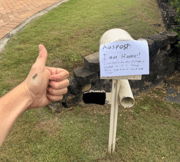Increased wait times: How long will you wait for disability support now?
By
Seia Ibanez
- Replies 13
The plight of Australians living with disabilities has been brought into sharp focus with the revelation that average wait times for Disability Support Pension (DSP) assessments have more than tripled in the last four years.
The data, disclosed during Senate estimates, paints a concerning picture of a system struggling to keep up with demand, leaving many vulnerable individuals in prolonged financial uncertainty.
According to the latest data from Services Australia, individuals are now waiting an average of 107 days, a significant leap from the 33 days reported in the 2020-21 financial year.
The DSP is a lifeline for individuals who have a limited ability to work due to disability, providing a maximum rate of $1,116 a fortnight for a single person with no dependents, which equates to roughly $29,000 a year.

In contrast, the maximum rate of JobSeeker for a single person with no dependents is approximately $763 a fortnight, just under $20,000 a year.
The disparity between these two payments is stark, and the delay in processing DSP claims can force individuals to rely on the lower JobSeeker payment, pushing them closer to the poverty line.
The wait times vary depending on the condition being assessed, with people living with chronic illnesses facing an average wait of 135 days and those with mental illness or psychiatric disorders waiting for 123 days.
This is in contrast to the 50-day wait for individuals with cancer.
Nearly 10,000 people have waited more than 120 days for their claims to be assessed.
Greens senator Penny Allman-Payne expressed concern during an estimates hearing in Canberra.
‘These are people who are genuinely in crisis,’ she said.
‘I'm wanting to hear what's happening to really push that [waiting time] along for such a vulnerable cohort.’
Services Australia's Deputy CEO, Jarrod Howard, acknowledged the complexity of DSP claims and the role of allied health professionals in the assessment process.
‘The assessments are made by an allied health professional. We've got 70 more allied health professionals coming on board out of a recent recruitment round to assist with these assessments,’ Howard said.
‘We are seeing good progress in relation to those numbers starting to come down. I would expect that they will continue to come down over the next few months.’
However, disability advocates and organisations have criticised the current system for its high rejection rate and the difficulties faced by applicants.
A 2021 report from the Australian Federation of Disability Organisations estimated that more than 376,000 people had transitioned from DSP to JobSeeker, with chronic illness and psychosocial illnesses being the largest groups affected.
The human impact of these delays is profound, as illustrated by the story of Chris, a triple j Hack listener living with complex PTSD.
Chris waited 10 months for his DSP assessment, during which time he faced financial hardship, skipped meals, rationed medication, and came dangerously close to losing his home.
‘There was not enough money in the bank. I was attempting to buy something [medication], and it's just not there, or missing doctor's appointments, psychiatrist appointments,’ Chris said.
‘After picking up my three-year-old son from pre-school, he asked us: “Do we have enough money to buy milk for the fridge today?”’
‘It showed that despite our best efforts, he was aware that money had become a big problem for us.’
‘The worst part was the answer to his question was no.’
It was only after contacting his federal MP, Susan Templeman, that his claim was expedited and approved.
He already had an outcome eight days after contacting Templeman’s office.
‘That long period of hopelessness [where I had] no idea what was going to happen, no idea if I was going to be able to feed my family, let alone eat myself, that period was hopefully over,’ he said.
 What do you think of this story, members? Let us know in the comments below.
What do you think of this story, members? Let us know in the comments below.
The data, disclosed during Senate estimates, paints a concerning picture of a system struggling to keep up with demand, leaving many vulnerable individuals in prolonged financial uncertainty.
According to the latest data from Services Australia, individuals are now waiting an average of 107 days, a significant leap from the 33 days reported in the 2020-21 financial year.
The DSP is a lifeline for individuals who have a limited ability to work due to disability, providing a maximum rate of $1,116 a fortnight for a single person with no dependents, which equates to roughly $29,000 a year.

Services Australia’s data revealed that individuals are waiting an average of 107 days for their Disability Support Pension. Credit: Shutterstock
In contrast, the maximum rate of JobSeeker for a single person with no dependents is approximately $763 a fortnight, just under $20,000 a year.
The disparity between these two payments is stark, and the delay in processing DSP claims can force individuals to rely on the lower JobSeeker payment, pushing them closer to the poverty line.
The wait times vary depending on the condition being assessed, with people living with chronic illnesses facing an average wait of 135 days and those with mental illness or psychiatric disorders waiting for 123 days.
This is in contrast to the 50-day wait for individuals with cancer.
Nearly 10,000 people have waited more than 120 days for their claims to be assessed.
Greens senator Penny Allman-Payne expressed concern during an estimates hearing in Canberra.
‘These are people who are genuinely in crisis,’ she said.
‘I'm wanting to hear what's happening to really push that [waiting time] along for such a vulnerable cohort.’
Services Australia's Deputy CEO, Jarrod Howard, acknowledged the complexity of DSP claims and the role of allied health professionals in the assessment process.
‘The assessments are made by an allied health professional. We've got 70 more allied health professionals coming on board out of a recent recruitment round to assist with these assessments,’ Howard said.
‘We are seeing good progress in relation to those numbers starting to come down. I would expect that they will continue to come down over the next few months.’
However, disability advocates and organisations have criticised the current system for its high rejection rate and the difficulties faced by applicants.
A 2021 report from the Australian Federation of Disability Organisations estimated that more than 376,000 people had transitioned from DSP to JobSeeker, with chronic illness and psychosocial illnesses being the largest groups affected.
The human impact of these delays is profound, as illustrated by the story of Chris, a triple j Hack listener living with complex PTSD.
Chris waited 10 months for his DSP assessment, during which time he faced financial hardship, skipped meals, rationed medication, and came dangerously close to losing his home.
‘There was not enough money in the bank. I was attempting to buy something [medication], and it's just not there, or missing doctor's appointments, psychiatrist appointments,’ Chris said.
‘After picking up my three-year-old son from pre-school, he asked us: “Do we have enough money to buy milk for the fridge today?”’
‘It showed that despite our best efforts, he was aware that money had become a big problem for us.’
‘The worst part was the answer to his question was no.’
It was only after contacting his federal MP, Susan Templeman, that his claim was expedited and approved.
He already had an outcome eight days after contacting Templeman’s office.
‘That long period of hopelessness [where I had] no idea what was going to happen, no idea if I was going to be able to feed my family, let alone eat myself, that period was hopefully over,’ he said.
Key Takeaways
- Average wait times for Disability Support Pension (DSP) assessments have more than tripled in four years, with current wait times at an average of 107 days.
- Wait times differ significantly based on the condition being assessed, with chronic illnesses and mental health conditions leading to the longest waits.
- Disability advocates have raised concerns about the difficulty of accessing the DSP and the increase in rejection rates, which they argue force many onto the lower-paid JobSeeker payment.
- Services Australia is working to address the backlog of claims with additional allied health professionals and expects wait times to decrease in the coming months.







